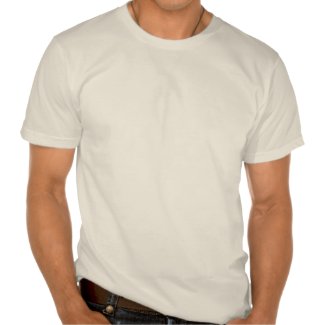 I really thought nothing could top Dirk Bogarde's performance in Tale of Two Cities, (1958) but I think Ronald Colman''s Sydney Carton is at least as good. I was just reading about Colman being given the part after it was conditionally offered to Brian Aherne in the latter's A Dreadful Man. Though Aherne was crushed, he was happy for his friend. The part went on to be Colman's favorite of his entire career and I can see why. He really gets to do it all: brood, act drunk, woo women, be witty, save the day, cry on camera...It's just a big box of delicious acting treats. No wonder Aherne was still licking his wounds decades later.
I really thought nothing could top Dirk Bogarde's performance in Tale of Two Cities, (1958) but I think Ronald Colman''s Sydney Carton is at least as good. I was just reading about Colman being given the part after it was conditionally offered to Brian Aherne in the latter's A Dreadful Man. Though Aherne was crushed, he was happy for his friend. The part went on to be Colman's favorite of his entire career and I can see why. He really gets to do it all: brood, act drunk, woo women, be witty, save the day, cry on camera...It's just a big box of delicious acting treats. No wonder Aherne was still licking his wounds decades later.Colman is supported by an awesome cast that includes the always delightful Edna May Oliver as Pross, Reginald Owen as Carton's s loud-mouthed boss Stryver, Basil Rathbone as the villainous Marquis, Blanche Yurka as Madame DeFarge and Elizabeth Allan as Lucy Mannette. Director Jack Conway manages the big crowd scenes and the epic sweep of history, of course, but is equally at home in the claustrophobic world of Georgian interiors, some shabby, some baroque. Little touches like Colman's face framed in Jack Crusher's dilapidated doorway made me continuously happy. My favorite scene is one that could be completely unbearable in the hands of any other director. On Christmas eve Carton runs into Lucy and Pross on their way to church. He tags along, partly because he's drunk and indulging his desire to be with Lucy and partly because he's too polite, even when blotto, to disappoint her. Lucy lights a candle for him while "Oh Come All Ye Faithful (ever notice how so many Christmas hymns are downbeat and in the minor key? ) moves Carton to tears. Colman plays the scene with the absolute minimum of acting flourish which makes it work and keeps it from falling over the cliff into cliche. It almost makes up for the awful and scene in which Carton states the obvious about his attraction to Lucy while talking to himself in a mirror. The mirror scene is awful simply because it's unnecessary. We've already seen Sydney's motivations. We don't need it spelled out. Still Colman manages to make it bearable by giving it a wry dignity that it doesn't deserve.
Conway manages a level of realism that's unprecedented for big budget historical films of this era. The peasants look truly shabby (though not as terrifically famished as they do in the '58 version) and the director's eye for historical detail is razor sharp. In the trial scene the judge continually clouds the air with perfumed powder whenever those of the lower ranks get within ten feet of him. In another scene Carton and Stryver warm their punch in a big bowl with a hot poker from the fire. This latter image is straight out of Hogarth engravings of the period and it made the history dork in me squee with delight.
The Defarge's are grungy "characters" but I preferred them in the 1958 version where they are a touch less grotesque and more earthy. Yet, this version is probably closer to Dicken's vision since Dicken's was never afraid of making his minor characters into caricatures. And I thought again of another 18th century satirist Gilray as nasty Madame LeFarge and her toothless, warty cohorts cackle with delight while they imagine torturing their aristocratic overlords and rub their hands with glee in expectation of introducing little Lucy to the guillotine. The best scene that doesn't involve Colman is the awesome catfight between Pross and Defarge. This has to be one of classic cinema's greatest girl fights--these two should have had a cameo in The Women.
It's rare that a classic novel gets even one great cinematic adaptation, but this one is lucky enough to have two. You can't go wrong with either film and if you figure out who is the more awesome Sydney Carton, Dirk or Ronny, then you'll have to let me know.





4 comments:
I loved this movie, Jenny, Colman was incredible as he pretty much always is!
The entry in the AFI catalog on this one said David O. Selznick wanted Colman to play both Sidney Carton and Charles Darnay, but that Colman refused to do the double role--in the end they decided this was better anyway because Carton might not have aroused proper sympathies if Ronald Colman got the girl in the end anyway.
I watched David Copperfield immediately after this one and thought it was fun to find Tale alumni Elizabeth Allan, Edna May Oliver, and Basil Rathbone together in the early scenes.
Cliff, I'm glad the studio went with Colman's idea. I agree it would have lessened the impact of Sydney's sacrifice.
I haven't watched David Copperfield in ages. I'll have to keep an eye out for it.
David Lean did not make this film. It was directed by Jack Conway with the large-scale action scenes second-unit directed by Jacques Tourneur. David Lean's classic Dickens films were 'Great Expectations' and 'Oliver Twist,' made in England a decade or so later.
Thanks Dan. I've corrected the text. Where would I be without the edit button, eh?
Post a Comment